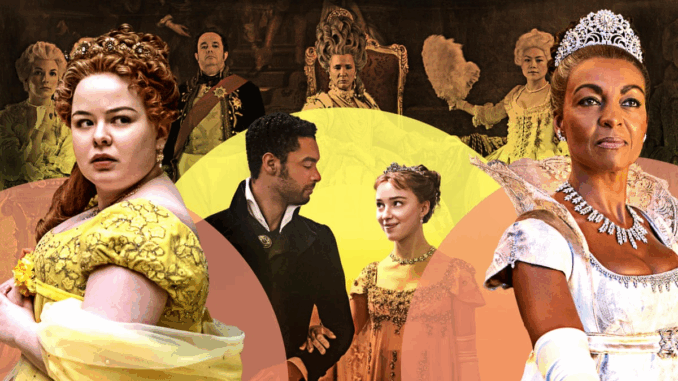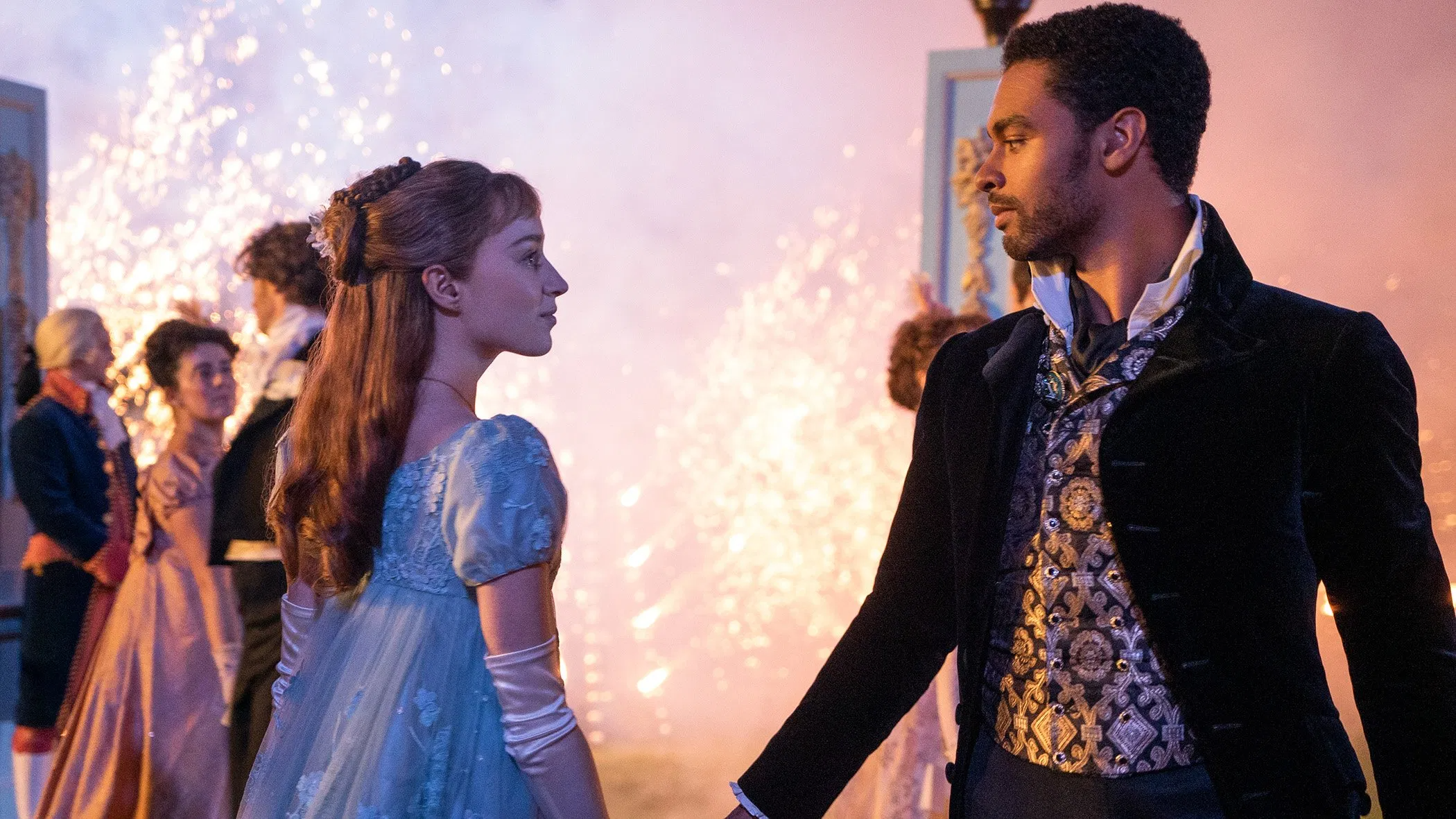
As Bridgerton continues to dominate global streaming charts, its stars have become some of the most recognized faces in modern television. But behind the lavish gowns and steamy love stories, several cast members have confronted very real scandals that tested their resilience.
One of the most public challenges came when Nicola Coughlan became the target of repeated body-shaming comments online. Despite her stellar performance as Penelope Featherington, some critics focused solely on her physical appearance. The situation escalated to the point where Coughlan publicly asked fans and reporters alike to refrain from discussing her body. Rather than letting the scandal define her, she turned it into a catalyst for discussions on body positivity and media responsibility.
 Jonathan Bailey has also faced personal scrutiny. When Bridgerton launched him to international fame, old interviews resurfaced revealing that he had once been urged by industry professionals to hide his sexuality if he wanted career success. Though the revelation was not new, its renewed visibility created a widespread conversation about Hollywood’s historic discrimination. Bailey handled the controversy with honesty and used his platform to advocate for LGBTQ+ visibility.
Jonathan Bailey has also faced personal scrutiny. When Bridgerton launched him to international fame, old interviews resurfaced revealing that he had once been urged by industry professionals to hide his sexuality if he wanted career success. Though the revelation was not new, its renewed visibility created a widespread conversation about Hollywood’s historic discrimination. Bailey handled the controversy with honesty and used his platform to advocate for LGBTQ+ visibility.
Phoebe Dynevor faced a different kind of scandal—one rooted in celebrity obsession rather than misconduct. Her relationship with a globally famous musician triggered a tabloid frenzy. Every public sighting, every gesture, and every whisper turned into headlines. This intense media fixation raised concerns about actor privacy, especially for young women suddenly thrust into global fame.
For Regé-Jean Page, the controversy centered around his exit. Page’s decision not to return for season two led to an explosion of theories: creative disagreements, network conflicts, or even tension with co-stars. Although none of these claims were substantiated, the avalanche of online speculation became a scandal of its own. Page clarified that his role was always planned as a limited arc, but the incident revealed how easily public narratives can overshadow truth.
Simone Ashley encountered online hate campaigns once she joined the cast. Critics questioned her suitability for the role of a Regency-era heroine, using racially charged arguments disguised as concerns about “historical accuracy.” The controversy reinforced the systemic challenges faced by actors of color in historical dramas. Ashley responded with professionalism and grace, focusing on her work and allowing the quality of her performance to silence critics.
Even the show itself was pulled into scandal-level public debate. Its racially inclusive casting model, once celebrated, became a battleground for online arguments. Creators defended their creative vision, emphasizing that Bridgerton was never meant to replicate strict historical accuracy. Instead, it sought to create a world where diverse talent could shine.
These real-life controversies reflect the pressures that actors face when a series becomes a global sensation. For the Bridgerton cast, managing fame has required resilience, honesty, and an unwavering focus on their craft.